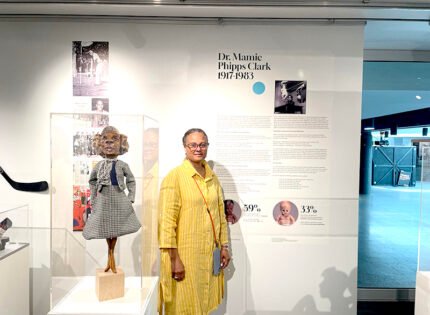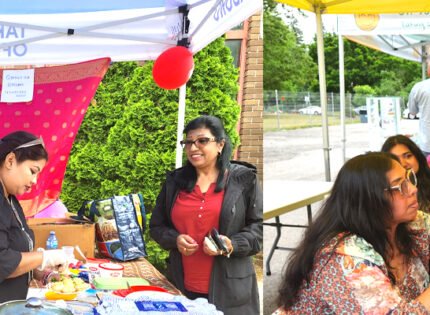 In Canada Tim Hortons is ubiquitous. It is roughly three times more numerous than Mc Donald’s with a total of 4,300 branches. And Tim Hortons is watching.
In Canada Tim Hortons is ubiquitous. It is roughly three times more numerous than Mc Donald’s with a total of 4,300 branches. And Tim Hortons is watching.
According to Statistics Canada six million Canadians out of an adult population of 31 million, use the Tim Hortons app to order their drinks. About 80% of Canadians stop by at least once a month. And believe it or not Tim Hortons is watching.
One of those affected by the tracking app was Financial Post’s journalist James McLeod.
In a story in 2020 McLeod found the Tim Hortons app had been tracking his movements so closely that it knew where he lived, where he worked, where he vacationed.
He filed a freedom of information request to learn more and obtained data showing the Tim Hortons app on his phone had tracked his location more than 2,700 times in less than five months.
To worsen matters, data also showed that the app was tracking him even when it was closed.
Tim’s app uses technology from Radar Labs, an American company that states on its website that it can check a phone’s location in the background as often as every three to five minutes.
Radar uses those GPS coordinates to infer the location of customers’ homes, where they work, as well as every time the company thinks they visited one of their client’s competitors, such as Starbucks, and Dunkin Donuts.
If one really cares about privacy, then it would appear that the best remedy would be to make your own coffee.
Sadly, this may not be enough. American researcher and associate professor Christopher Balding reported in the Washington Times that he uncovered evidence that China is collecting data through smart coffee machines made in that country.
The Kalerns machines collected information about who used them, where they lived, and if they were used commercially, payment data. https://www.washingtontimes.com/news/2022/jun/14/chinese-smart-coffee-machine-threat-data- security/
The combination of smart phones and smart homes simply translated simply means an unparalleled amount of private information/data is now out in the open.
Often, your information is available for purchase by the highest bidder. The majority of purchasers want to market their product to the right consumer, at the right time and place to increase their chances of getting a sale.
This has become so commonplace that we have become numb to it. That is the reason why when you search for example shoes on Amazon, adverts for exactly that same size and type of shoe follow you around The Internet for weeks afterward.
It is also happening offline .
Download the app of a store or mall and you will probably be offered some exclusive deals. The app may also log in the store where you spent the most time and which items you probably looked at.
Now the products you looked at offline will stalk you around the Web too.
This data is combined and sold.
In Canada it is not just coffee shops using this data. In December 2021, the Public Health Agency of Canada admitted to tracking 33 million cell phones during the pandemic. They contracted with Blue Dot, an intelligence company that uses big data, machine learning, and digital technologies to help governments and global enterprises get ahead of the growing number of disruptive outbreaks appearing in the world today.https://www.919thebend.ca/2022/05/06/detailed-cellphone-data-used-to-track-canadians
A report sent to the Parliamentary Committee showed that during the COVID-19 pandemic Canadians’ movements, including trips to the liquor store and pharmacy were also closely tracked via their mobile phones without their knowledge.
Again Blue Dot prepared reports using anonymized data for the Public Health Agency of Canada to help it understand travel patterns during the pandemic. The report reveals the agency was able to view a detailed snapshot of people’s behaviour, including visits to the grocery store, gatherings with family and friends, time spent at home and trips to other towns and provinces. Security on smart devices is notoriously bad, so it may not just be data brokers watching you. For example, smart televisions with a built-in camera. Manufacturers of smart speakers and home camera devices generally give data to the government when served with a warrant.
Ties to China is another great concern.
As a manufacturing hub of the world they can put the tracking capability in all kinds of devices that go out all over the world. Microphones are appearing in more and more devices . It is not just the smart speaker from Amazon.
China is said to be collecting data on anything and everything
In general it is apparent that we have become unconcerned about all the surveillance. Or is it that we are, but not enough to do anything about it. We are not happy with businesses tracking us and selling our data , but not enough to change our behaviour or force those businesses to change.
Smart tech has become far too convenient.
However, consider this, while we behave as if we are digitally handcuffed, technology continues to give countries and governments unprecedented reach into our lives with consequent unprecedented power.
How free are we if the government is in our pockets and also our homes.
Aleuta continua—The struggle continues.
















